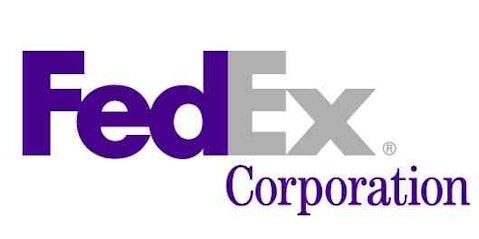FedEx Corporation (NYSE:FDX) is a bellwether of the economy because of its global presence and size. It recently reported its earnings and gave weak guidance, therefore making it evident that the economy remains weak. With a weak outlook from the company let’s analyze what to expect from the company and check what it offers investors.
Number crunching
FedEx Corporation (NYSE:FDX) reported quarterly earnings of $2.13 a share, beating analysts’ estimates by $0.17. The $2.13 earnings, exclude both share business realignment program charge and a non-cash aircraft impairment charge at FedEx Express. If we take these into effect the profit will be down to just $0.95 per share, 45% lower compared to the same period last year.
The revenue for the quarter totaled $11.4 billion, about $40 million below consensus estimates, but a 3.6% improvement compared to last year. FedEx Corporation (NYSE:FDX) Express revenue improved 3% at $6.98 billion. The company’s revenue from its ground segment, surged 12% to $2.78 billion, as average daily volume improved 10% in the recently reported because of growth in market share and growth in e-commerce.
Further, the company’s management was boasting about improvement in its freight margins, but the fact remains that operating profits were just 4.4%, a 44% reduction in profitability from last reported quarter.
An investment into the future
FedEx Corporation (NYSE:FDX) initially started delivering its services in priority air shipment market but eventually diversified into cargo and freight market as consumers are becoming more and more price conservative. I believe that as the demand for priority delivery services is falling, domestically as well internationally, diversification is working in company’s favor. Moreover, FedEx’s potential to earn better returns comes from economy packages as the company can use other carriers and their services for those shipments. Thus economy shipments are less capital intensive than priority services which utilize FedEx’s airplanes. FedEx Ground is benefiting from the strong growth of e-commerce and is concentrating on the domestic market using its tracking system to improve its revenue.
FedEx Corporation (NYSE:FDX) is trying to cut its costs in order to better manage its margins in the future. The company is planning to reduce its workforce by cutting 3,600 employees under a voluntary buyout program by May 2014. Further, FedEx is cutting some of its capacity from Asia in April, and one more Express flight to Asia in July to become more economical. The cost reduction will improve profitability by more than $1.5 billion once the entire restructuring is complete in couple of years making the company a good long term investment.
Apart from restructuring and controlling costs, FedEx Corporation (NYSE:FDX) is acquiring companies over the years to expand globally. Recently it is acquiring Supaswift and its subsidiaries which will help the company provide its services in Southern part Africa. The deal will provide FedEx with access to 7 markets in Southern Africa, such as South Africa, Malawi, Mozambique, Swaziland, Zambia, Botswana, and Namibia with an existing set up.
FedEx also realizes the potential that Asian markets, especially China provide and is investing $100 million to improve its position in the country. The company is currently setting up hub in Guangzhou, to set its foothold across 100 new Chinese cities in the coming five years. In 2012 it acquired a Polish courier company Opek Sp. z o.o., a French company B2B Express transportation company, TATEX and Cometa, a Brazilian transportation and logistics company to strengthen its international operation.





